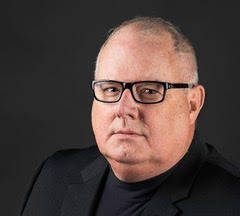Consummate warrior’s legacy lingers
Gen. Douglas MacArthur said, “Old soldiers never die, they just fade away.”
A dear friend and consummate warrior who died last month may eventually fade away, but his footprints are permanently enshrined in the annals of world history and military valor.
Col. Sully H. de Fontaine, U.S. Army retired, Special Forces and military police officer, lived a remarkable and heroic life. “Sully” was 92 when he was summoned to his final military formation.
I knew Sully only by reputation during my Army career. I met him in 2003 when I was invited to a monthly gathering of former and retired U.S. Army Criminal Investigation Command special agents. Sully was the senior member of the group, in age and rank, but politely demanded to be called “Sully,” and not “colonel” or “sir.” This request was but a small inkling of Sully’s humility and gentlemanliness.
We are a small group, numbering less than 15, averaging six or seven during our monthly get-together. Sully was a generation older than most of us, yet his physical fitness and mental acuity were envied. Sully seldom talked about himself; he was always more interested in others. What we learned about Sully over the years was often acquired via third-party sources.
Sully was born in Brussels to French parents. In 1943, at the age of 16, Sully finagled his way into the British Army and later became a member of the Office of Strategic Services, the precursor to today’s CIA. The British Special Air Service and OSS trained Sully. His parachute jumps during training were through the bottom hatch of a hot-air balloon.
After parachuting into enemy territory and successfully repatriating an Allied pilot, Sully was promoted to sergeant. He was 17 years old.
After the war and after completing college, Sully joined the United States Army. In 1956, he was detailed to a Special Forces unit during the Hungarian crisis. Sully completed the Special Forces qualification course the next year and stayed as an instructor for two more years.
Sully was CIA before there was a CIA and he was a Green Beret before they wore green berets, but you would have to read between the lines to grasp this because he rarely spoke of his achievements.
In 1960, Sully and two other Green Berets, Capt. Jake Clements and Sgt. 1st Class Stefan Mazak, were sent to the Congo to rescue missionaries and other civilians who were in danger of being slaughtered during civil unrest. Numerous examples of heroism during their precarious touch-and-go near-death encounters are detailed in a page-turner book Jack Lawson wrote with Sully, “The Slaver’s Wheel.”
In one example, Sully saved the lives of a Catholic priest and 12 nuns. Excessively armed rebel soldiers, drunk on power, alcohol and drugs, arrived at a mission to kill the priest and nuns. Sully held the rebels at bay for over two hours and resolved the situation after he grabbed the rebel leader by his pants belt, pulled the pin from a grenade and threatened to drop it down his pants if the rebels came any closer.
Sully, Mazak and Clements rescued over 200 civilians, including the priests and nuns, during this covert mission. Officially, there were no American troops in the Congo during this time and there would be no awards for combat heroism. However, 1st Lt. Sully de Fontaine would receive the Legion of Merit, usually reserved for colonels and generals.
During his long career, Sully deployed to many hot spots, some still classified. After two combat tours in Vietnam, he was assigned to the military police branch, but very much remained a Green Beret. Sully was sometimes deployed on classified missions in the middle of an MP assignment and once while attending advanced MP training.
Sully commanded a criminal investigation detachment in France in 1966. He returned to Vietnam in 1968 as an MP brigade staff officer and became the only commissioned officer to possess CID credentials and badge at the time.
Sully was the provost marshal for the 1st Armored Division in Germany in the early ’70s and later was the executive officer of a CID headquarters.
Sully retired from the Army in 1976. He was recalled to active duty afterward for short periods.
There is not enough space to list the combat valor awards Sully received for his actions in combat. The Bronze Star Medal with “V” device for combat valor and his two Purple Hearts are just a few of the more than 20 others.
Sully received the OSS Congressional Gold Medal last year and is a Distinguished Member of the Special Forces regiment.
After Army retirement, Sully worked as special agent for the state of Montana and a senior gaming agent with the Nevada Gaming Control board. He held executive positions for several gaming firms including the Venetian Macau in China.
Sully loved Boulder City and was thrilled when he learned I was a Boulder City police officer. On a rare occasion when I was on the day shift, Sully and his bride, Angie, traveled to Boulder City from Las Vegas and we had lunch at Milo’s.
Sully loved the military and he loved law enforcement officers. His network of friends and contacts is innumerable and global.
Sully spent his last days on Earth at the Southern Nevada State Veterans Home in Boulder City. It was an appropriate location for a hero who had spent his life protecting others. De oppresso liber, “To free the oppressed,” is the Special Forces motto.
Sully will be buried with full military honors at Arlington National Cemetery.
Gen. Norman Schwarzkopf said, “It doesn’t take a hero to order men into battle. It takes a hero to be one of those men who goes into battle.”
Sully was one of the heroes I had the honor of walking alongside. I will miss him.
Dan Jennings is a retired Army captain and a retired BCPD lieutenant. He can be reached at bcpd267@cox.net.






